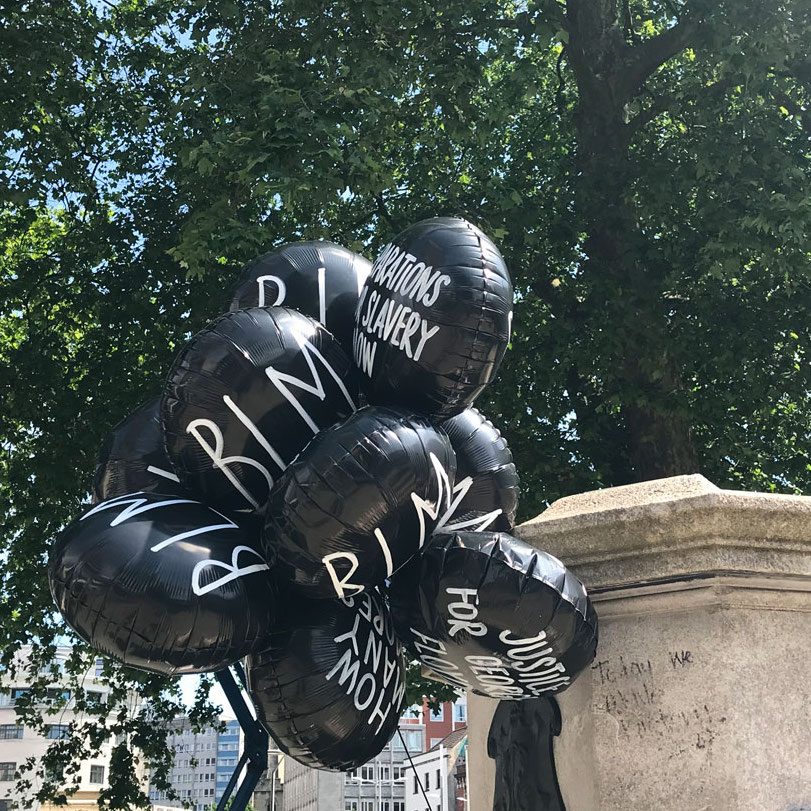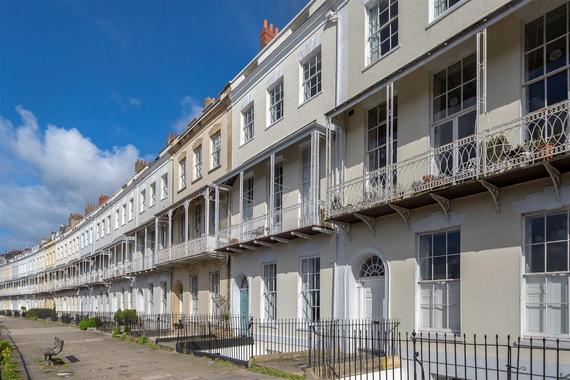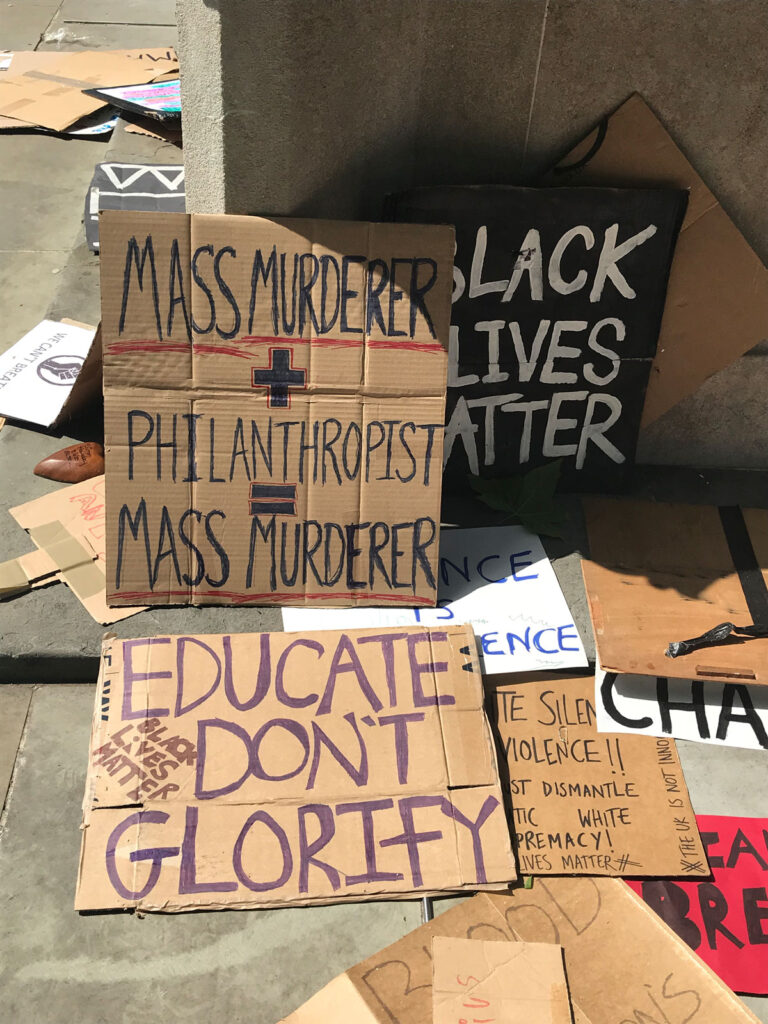Talk given by Helen Watkins at a Meeting for Learning on September 20 at Redland:
I won’t give a precis of Tom Shakespeare’s lecture as you can read it for yourselves if you haven’t yet done so, but instead I shall pick out aspects which particularly resonated with me. These in turn have led to further thoughts linked to the topic of hope. I hope this will be helpful as we explore together both the Swarthmore lecture and the nature of hope – what it means for us, how it might be manifest and what we use it for. Individually and together as Quakers.
A bit of background first! Tom Shakespeare, a social scientist with 30 years’ experience in disability rights and almost as long in the arts, was asked to speak about hope. He took as his starting point the following words of George Fox:
“I saw also that there was an ocean of darkness and death, but an infinite ocean of light and love which flowed over the ocean of darkness. And in that also I saw the infinite love of God: and I had great openings.”
Tom’s Quakerism is deeply rooted in the Christian tradition and he values reading the Bible regularly. The words used may have felt strange or uncomfortable to some of us, reassuring to others. For him, hope is closely linked with the experience of suffering, a gift from the Christ who was crucified and rose again. I find this problematic as, in my own upbringing, I was encouraged to ponder on my own guilt and unworthiness and to surrender totally to God. Being human and imperfect, and Easter being celebrated every year, I was never going to rise above that one! It didn’t give me hope, instead my musings provoked despair, guilt, endless self-absorbed striving and mental contortions! I would never be good enough. It also led to me denying what my actual feelings were. Furthermore, the notion, which Tom describes, of the ego stepping aside to allow God in, is one which nudges me forcefully to object “But I was made by God. Surely he/she/it wants me to be fully me?” Humility? Fine. Abject surrender? No way.
I can’t subscribe to what feels, to me, like a bargaining transaction. You believe in and worship me and I will give you hope to get you through this earthly life and the promise of heaven afterwards. That doesn’t fit my definition of unconditional love, which is my understanding of the God word. I neither believe in heaven or feel the need for it as an experience after death. I don’t feel a “sure and certain hope in the resurrection.” I do believe in working towards the kingdom of God in this life. So, the idea of hope springing from a, perhaps, conventional faith in a Biblical God, according to some interpretations, has no resonance for me.
It was Alexander Pope who wrote that “Hope springs eternal in the human breast.” Unique to our species is the belief that things can and will get better. Hope is by its nature optimistic and encouraging. Some trust that, through their religious faith, their future will be protected by their deity. I am not one of them. No longer. I feel liberated from that thrall. For me, hope is universal and often secular. A lighthouse whose beam beckons to us during dark times, a haven from pessimism and despair, which can kickstart our courage and mobilise our energy, enhancing our mood and creative thinking. It can be a great motivator, prompting us to help others.
As a Quaker, I want to answer that of God in me and in others. Do I need hope to do this? Do I have hope? Do I call it by another name?
I think that, for me, my word for the equivalent of hope is possibly bloody-mindedness. The thing which keeps me plodding on, one step at a time, when it seems crazy to do so. Tom listed some of the things which can make us feel despairing, lacking in hope. You can compile the list yourselves – Covid19, global warming, populist policies, war, inequalities in society. You can also put together your own list of initiatives, here and in other parts of the world, which give you a different perspective or insight. For example, there have been improvements in literacy rates and greater provision of such necessities as clean water and sanitation.
I would argue that these beacons of hope – the visible signposts towards the possibility of a better, kinder world and the implementation of one – are often inspired by individuals, who led the way. Tom spoke of the American civil rights movement, in which there was a need to “accept finite disappointment but never lose infinite hope.” One of his disability heroes talks of “pessimism of the intellect, optimism of the will.” Struggling against the odds, being utterly realistic, understanding our limitations, finding a way to endure and still hoping.
I have a card in my study, made by a nun in a religious order, which proclaims “The glory of God is man fully alive.” Mankind. Men and women. Individuals. In all our glorious diversity.
But, I am not a Martin Luther King or a Nelson Mandela. What can I do? How can I be fully alive? What can Quakers do? Well, we have a practice of silent waiting on the Spirit, in the Light, whatever name we give it. And it is all based on belief in “that of God in everyone.” That, to me, is the crux of it all. That is what gives us hope. It is a belief based on hope. It’s an amazing, bold assertion. It is what fuels our desire to serve, to join with others in making our world a better place. And fuel is what hope is, in a way, at least for me. It is what drives us, what supports us. Hope or steadfastness or bloodymindedness give us the resilience to keep on going, to get up when we have fallen, even if we can only get as far as crawling and not standing.
I might replace the word “hope” with “steadfastness.” That doesn’t depend on hope, actually. It is a conscious discipline, but not a joyless one. I am wary of the snares of self-deception and delusion. I favour a stripping away of the tempting comforts which could provide false reassurance. In that, I concur with Tom, who emphasised the need for facing reality head on. Steadfastness, for me, is fundamental to my experience of worship. Together with the proclamation of that of God in everyone. I aim to sit in meeting in an attitude described by T S Eliot in Four Quartets (East Coker 1940).
“I said to my soul, be still and wait without hope
For hope would be hope for the wrong thing”
and a few lines on
“Wait without thought, for you are not ready for thought:
So the darkness shall be the light and the stillness the dancing.”
The darkness is as important to me as the light, however uncomfortable it may be. I have times when I feel hopeful and others when I feel hopeless. It’s called being human and fallible and honest. I hope – aspire – to my experiences deepening my compassion for others. And that hope won’t be worth anything to me or others unless it is rooted in suffering as well as in joy.
I see a stubborn hope in the fundamental godliness of us all as that which provides the foundations for our worship, our waiting on God/the Light, our discernment and the impetus for love manifested in actions. Tom Shakespeare stated that “the only recognisable feature of hope is action.” Large and small. Personal and communal.
Hope also leads to visions and dreams. We can imagine a better world. Martin Luther King showed us this as did Nelson Mandela. Often the arts show us this and I would have liked to have heard more of Tom’s thoughts about the role of the arts.
So, where is my thinking at the moment?
I see some overlaps when considering resilience, hope and a Quakerly attitude to life. A stability of focus, a willingness to be flexible, to let go physically and mentally, or, as Tom might say, “Let go and let God.” There needs to be a head on awareness of the realities of a situation coexisting with an awareness of our own emotions. But whereas some people would narrowly define resilience as the ability to bounce back, I feel Quakers have the ability to bounce forwards.
There needs to be compassion too. A reaching out to those who have no hope. Any or all of us can feel hopeless at times. Quakers are not immune. Many people live in such desperate situations in the world that hope is an unreachable luxury. Tom suggested that people learn to cope, adapt and survive, but I suspect we only see the survivors. So, rather than acting like Tigger all the time, full of boundless hope which we want to share, let’s be prepared sometimes to be more like Piglet, who can quietly be with his friends, accepting them as they are, however gloomy the place. Offering the future possibility of hope through that present act of love.
Quakers value equally the silent waiting together, listening for the Spirit, with the ensuing actions. Worship is the precursor and accompanier to action, sustaining our hope and resilience as individuals and as a community.
We are all in this together, friends. Let’s keep going, fuelled by hope, or whatever we name it, because love requires and, more positively, invites it. As Tom says, we are a pilgrim people. Let’s keep on with compassion and purpose. We will not know our destination, I believe, but that’s fine. We can discern the direction. Let’s be profligate with our hope, our steadfastness, our bloody-mindedness and our love. And with our dreams. And I am, surprisingly for me, with St Paul on this one – “And now these three remain: faith, hope and love. But the greatest of these is love.”
submitted, at the request of many, by the editors





 As Julia points out, the 1747 Meeting House in Quakers Friars was built with wealth accumulated in part from the slave trade. Its sale in the 1950s contributed to the building of two meeting houses and a decade later to the refurbishment of a third (Redland). It seems likely that all the Meeting Houses in Bristol, with the possible exception of Portishead, owe their existence to funds derived directly or indirectly from slavery and the slave trade. What must we do in the light of that knowledge, Friends?
As Julia points out, the 1747 Meeting House in Quakers Friars was built with wealth accumulated in part from the slave trade. Its sale in the 1950s contributed to the building of two meeting houses and a decade later to the refurbishment of a third (Redland). It seems likely that all the Meeting Houses in Bristol, with the possible exception of Portishead, owe their existence to funds derived directly or indirectly from slavery and the slave trade. What must we do in the light of that knowledge, Friends?

 The beautiful terraces of Clifton were built in the era of Bristol’s slave trade. It is sad to find that those who invested in these elegant new homes included Quakers who had profited from slavery. Terry Townsend’s Bristol and Clifton Slave Trade Trails (2016) provides detailed evidence. Investors in Royal York Crescent included the Quaker merchant and iron manufacturer Joseph Harford, alongside others with African or West Indian links. Goldney Hall was the home of two famous Quaker families – the Goldneys and then the Frys. The Goldneys made their money as grocers dealing in slave-produced sugar, before moving on to run the Warmley Brass Works and invest in Abraham Darby’s Coalbrookdale ironworks. Darby’s Baptist Mills Brass Works, founded in 1702, produced manillas for the Africa trade. The Fry family also started out as grocers, before learning to manufacture chocolate from West Indian sugar and cocoa beans. The Eltons of Clevedon Court had diverse manufacturing interests, including links with fellow-Quakers Darby and the Goldneys. By 1748 ‘the family owned the slaver Constantine… which set sale for the Gold Coast and transported 240 slaves to Jamaica’ (Peter Martin and Isioma Nwokolo, Bristol Slavers, 2014, p.27). Other Bristol Quaker families with connections to slavery included the Champions (who owned West Indian ships and took over Darby’s Brass Works), the Galtons (exporting guns to West Africa), the Lloyds (trading, banking and plantation ownership) and William Reeve and Corsely Rogers (both trading slaves to South Carolina).
The beautiful terraces of Clifton were built in the era of Bristol’s slave trade. It is sad to find that those who invested in these elegant new homes included Quakers who had profited from slavery. Terry Townsend’s Bristol and Clifton Slave Trade Trails (2016) provides detailed evidence. Investors in Royal York Crescent included the Quaker merchant and iron manufacturer Joseph Harford, alongside others with African or West Indian links. Goldney Hall was the home of two famous Quaker families – the Goldneys and then the Frys. The Goldneys made their money as grocers dealing in slave-produced sugar, before moving on to run the Warmley Brass Works and invest in Abraham Darby’s Coalbrookdale ironworks. Darby’s Baptist Mills Brass Works, founded in 1702, produced manillas for the Africa trade. The Fry family also started out as grocers, before learning to manufacture chocolate from West Indian sugar and cocoa beans. The Eltons of Clevedon Court had diverse manufacturing interests, including links with fellow-Quakers Darby and the Goldneys. By 1748 ‘the family owned the slaver Constantine… which set sale for the Gold Coast and transported 240 slaves to Jamaica’ (Peter Martin and Isioma Nwokolo, Bristol Slavers, 2014, p.27). Other Bristol Quaker families with connections to slavery included the Champions (who owned West Indian ships and took over Darby’s Brass Works), the Galtons (exporting guns to West Africa), the Lloyds (trading, banking and plantation ownership) and William Reeve and Corsely Rogers (both trading slaves to South Carolina).







 Our Local Meeting for Business gave its support to the placing of a white poppy wreath, so Gaie and I entered into correspondence with the Powers That Be in an attempt to achieve formal inclusion. We wrote to the British Legion and the Lord Mayor of Bristol, before receiving our final answer from the Army officer in charge of ceremonial. The friendly British Legion hoped our request would be accepted. The Lord Mayor’s office raised several practical obstacles, but no objection in principle. The briskly polite Army officer gave us official permission to lay our wreath after the ceremony, and said we would be considered for fuller inclusion next year.
Our Local Meeting for Business gave its support to the placing of a white poppy wreath, so Gaie and I entered into correspondence with the Powers That Be in an attempt to achieve formal inclusion. We wrote to the British Legion and the Lord Mayor of Bristol, before receiving our final answer from the Army officer in charge of ceremonial. The friendly British Legion hoped our request would be accepted. The Lord Mayor’s office raised several practical obstacles, but no objection in principle. The briskly polite Army officer gave us official permission to lay our wreath after the ceremony, and said we would be considered for fuller inclusion next year.






 Fast forward to race day and I was feeling pretty nervous. At least I hadn’t slept in and missed the start of the race, or fallen down a flight of stairs and twisted an ankle; my two principal pre-race fears. I felt very lucky to be running with my two MBRC mates, Chris and Nicole (aka PB), who have a wonderful calming influence, which was just what I needed on race day.
Fast forward to race day and I was feeling pretty nervous. At least I hadn’t slept in and missed the start of the race, or fallen down a flight of stairs and twisted an ankle; my two principal pre-race fears. I felt very lucky to be running with my two MBRC mates, Chris and Nicole (aka PB), who have a wonderful calming influence, which was just what I needed on race day.